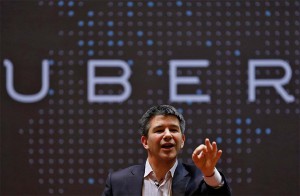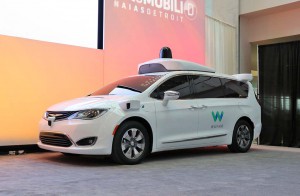
Uber CEO Travis Kalanick company issued a broad denial of charges leveled against it by Waymo in a recent court filing.
Uber, the ride-hailing company that is trying to change how people use cars, issued a broad denial of claims that it stole critical intellectual property originally developed by and for Google’s automated vehicle subsidiary Waymo.
The lawsuit filed by Waymo in February charges Uber is using intellectual property that was downloaded on a laptop computer by a former employee at Google, which now goes by the name Alphabet. The employee downloaded thousands of critical documents before leaving to launch his own self-driving startup, Otto, which was later acquired by Uber.
The former Google employee, Anthony Lewandowski, now holds a critical role in Uber’s self-driving-vehicle unit, which the ride-hailing service said is key to the company’s future.
Uber said, in the answer filed finally late on April 7, that it was working on self-driving systems prior to hiring Lewandowski, who had worked on lidar or the light detection and ranging sensors used by automated vehicles for navigation.
In its court filing, Uber said its lidar system is substantially different from the one devised by Waymo. For example, Uber said it uses four lenses while Waymo has a single-lens design. There are different lidar systems being developed in Silicon Valley and by automakers in Detroit and Germany.
(Uber exec could face injunction, criminal charges in suit. For details, Click Here.)

Waymo claims in a lawsuit that a former employee stole thousands of documents and then turn up at Uber overseeing its autonomous vehicle program.
However, Waymo has insisted its system is more advanced and claimed that Uber improperly took advantage of the research it had already carried out on the system. Waymo has also asked the U.S. District Court in San Francisco to issue a injunction, barring Uber’s work on self-driving cars until the case resolves.
In its court filing, Uber stated that stopping its work on self-driving cars would threaten its future as a “a viable business.”
“To hinder Uber’s continued progress in its independent development of an in-house lidar that is fundamentally different than Waymo’s, when Uber has not used any of Waymo’s trade secrets, would impede Uber’s efforts to remain a viable business, stifle the talent and ingenuity that are the primary drivers of this emerging industry, and risk delaying the implementation of technology that could prevent car accidents,” Uber said in the filing.
(Internal documents show problems with Uber’s autonomous vehicles. For more on that report, Click Here.)
For a corporate giant, Alphabet/Google has generated a substantial amount of sympathy for the claims against Uber, which has been on the defensive ever since the suit was filed at the end of February.
William Alsup, the California federal judge overseeing the case, has even gone so far as to suggest that Google’s evidence in the case is very persuasive.
“I’ve never seen a record this strong in 42 years,” Alsup is reported to have said in open court. The judge also may have been using the bench to get the parties to reach an out of court settlement that would avoid a costly trial that ties up his courtroom for months.
(Waymo sues Uber for theft of autonomous vehicle intellectual property. Click Here for the story.)
Uber’s position also has been weakened by its ongoing battles with drivers, state regulators and critics, who claim that company’s aggressive, rule-breaking corporate culture goes too far in its efforts to reach objectives. Uber also has run afoul of a powerful taxi lobby across Europe, which has succeeded in keeping Uber’s ride-sharing service out of a number countries, including Germany and more recently Denmark and Italy.
